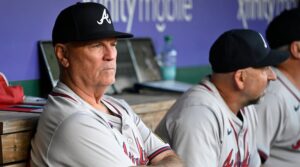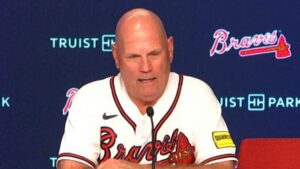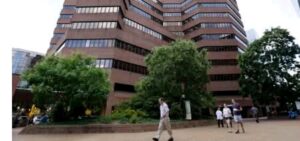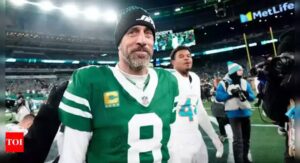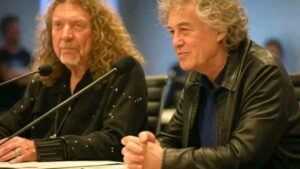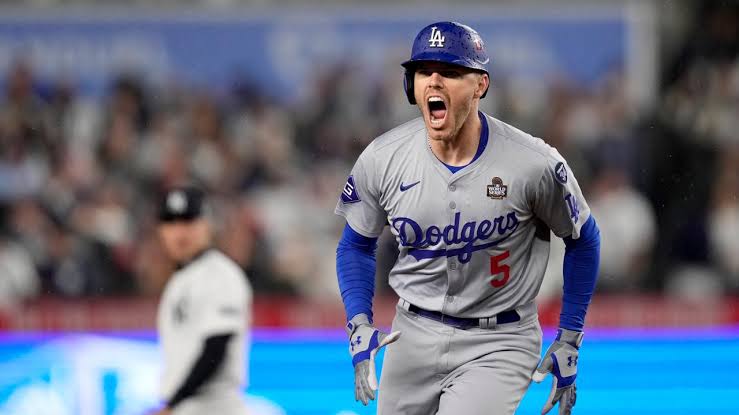
Braves’ Resilience on Display: Overcoming the Loss of Freddie Freeman
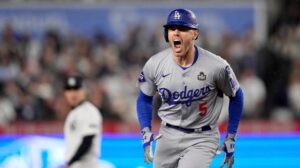
The Atlanta Braves’ journey in Major League Baseball has been marked by significant triumphs and challenges, none more poignant than the departure of beloved first baseman Freddie Freeman. After a decade with the Braves, Freeman, a perennial All-Star and 2020 MVP, signed with the Los Angeles Dodgers in 2021, leaving a void that many believed would be insurmountable. However, the Braves showcased remarkable resilience, turning a potential setback into an opportunity for growth and success.
Freeman’s impact on the Braves was profound. He was not only a statistical powerhouse, but also a leader in the clubhouse, embodying the spirit of the team. His departure raised questions about the Braves’ ability to remain competitive in a fiercely contested National League East. Many analysts speculated that losing Freeman would significantly hinder the team’s offensive capabilities and overall chemistry. Yet, the Braves responded with a blend of tenacity, strategic acquisitions, and the emergence of young talent.
In Freeman’s absence, the Braves turned to Matt Olson, acquired from the Oakland Athletics. Olson, known for his power hitting and defensive prowess, had big shoes to fill. While he faced early-season struggles adjusting to the spotlight in Atlanta, Olson quickly proved his mettle, becoming a key contributor in the lineup. His ability to drive in runs and anchor the first base position not only filled the statistical void left by Freeman but also helped solidify the Braves’ offensive identity.
The Braves’ roster boasted an array of talent, including Ronald Acuña Jr., Ozzie Albies, and Austin Riley. The team’s depth allowed it to withstand the pressure of Freeman’s departure. Acuña, returning from injury, provided a much-needed spark, while Riley emerged as a clutch performer, showcasing his potential as a future star. The synergy among these players emphasized the collective strength of the team, which proved crucial in the face of adversity.
Manager Brian Snitker played a vital role in the Braves’ successful adaptation. His leadership style fosters a culture of resilience, encouraging players to embrace challenges rather than shy away from them. Snitker’s experience and steady hand helped the team maintain focus, navigating through the ups and downs of the season while ensuring that the players rallied around one another. This unity became evident during key stretches, as the Braves clawed their way back into playoff contention.
The Braves’ pitching staff also rose to the occasion, with both established veterans and emerging young arms stepping up. The likes of Max Fried, Charlie Morton, and Ian Anderson delivered crucial performances throughout the season. Their ability to keep games close provided the offense with opportunities to score late, reinforcing the idea that the Braves were not defined by any one player, but rather by a cohesive unit committed to winning.
As the season progressed, the Braves demonstrated their ability to adapt and overcome obstacles. Their resilience culminated in a thrilling postseason run, which saw them reclaim the National League pennant and ultimately win the World Series in 2021. This triumph served as a testament to their character, proving that the team could rise above significant losses and challenges. The victory was not only a moment of joy for the franchise but also a powerful affirmation of the collective strength of the players and coaching staff.
Freddie Freeman’s departure initially cast a shadow over the Braves’ prospects, but the team turned that shadow into a source of motivation. By embracing the challenges that arose, the Braves transformed their roster, cultivated emerging talent, and fortified their team culture. In doing so, they not only honored Freeman’s legacy but also carved out their own identity, one that exemplifies resilience, unity, and the unyielding spirit of competition. The Braves’ journey serves as an inspiring narrative in sports, reminding fans that success often comes from overcoming adversity and embracing change.
